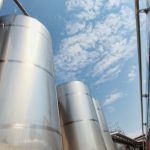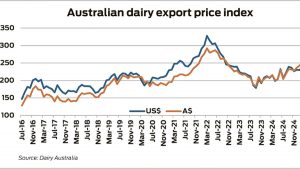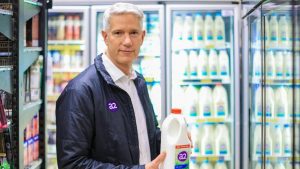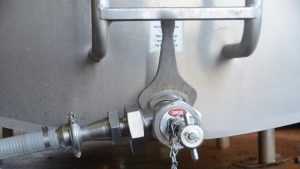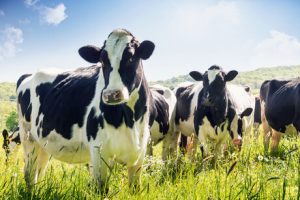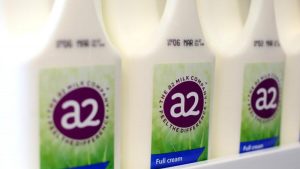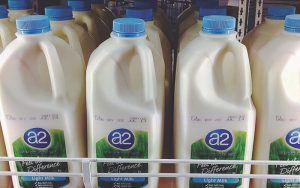
Newly appointed chief executive David Bortolussi told The Age and The Sydney Morning Herald China, which drives nearly half of the company’s sales, was “too big to ignore”, rejecting suggestions A2 could pull out of the region entirely.
“It is both our biggest risk and biggest opportunity,” he said. “Other markets are relatively small compared to the opportunity we have in China, and many businesses and brands would love to have the position we have in China.”
“I couldn’t see myself or our broader management team actively de-prioritising and investing elsewhere. We will go after our Chinese market and invest as heavily as we can there.”
On Thursday, A2 revealed its revenue for the 2021 financial year fell 30.3 per cent to $NZ1.21 billion ($1.16 billion) and net profit after tax plunged 79.1 per cent to $80.7 million, led by a 66.4 per cent drop in earnings out of its Chinese and other Asian markets. The company did not declare a dividend.
In light of this, the company said it would rethink its Chinese operations as part of a wide-ranging review after a number of fundamental changes in the region that have hurt A2’s growth.
A drop in China’s birth rate has shrunk the market for infant formula, and the pandemic has also seen a sharp reduction in ‘daigou’ resellers, which drove a significant chunk of A2’s sales into the region. In response, domestic formula producers in China have stepped up to fill the gaps, creating more competitive intensity and faster product innovation.
A2’s review will focus on maximising its domestic business in China, especially in the mother and baby store channel, and building out its online capabilities in the country. Mr Bortolussi said the business is also assessing ways to make up for the disruption in the daigou channel.
Other businesses, such as Treasury Wine Estates, have seen success in focusing growth in other markets after encountering difficulties in China, however, Mr Bortolussi said he was confident the review would help A2 get back on strong footing in the region.
However, shareholders were not convinced, sending the stock down 10 per cent to $6.21. Citi analyst Sam Teeger questioned if the company’s best days were behind it, raising concerns the business may not be able to resolve its issues.
“It is both our biggest risk and biggest opportunity.”
David Bortolussi says the company is retaining its focus on China.
“It seems like a leap of faith to assume the A2 can turn its fortunes around,” he said. “The company needs to make material changes surrounding driving growth, innovation and brand positioning in order to address structural headwinds.”
Mr Teeger said the company’s higher than expected earnings in the Australia/New Zealand region was a positive, along with A2’s successful efforts to right-size its inventory levels.
A2 has been seriously affected by the pandemic and has had to downgrade its earnings forecasts four times throughout the financial year as an expected recovery in its Chinese market did not eventuate and the business was forced to write-down $90 million in nearly out-of-date stock.
The company did not provide any specific guidance or sales figures for the start of the new financial year and warned investors conditions would continue to be volatile and challenging, with English label products expected to recover sales slowly and Chinese market growth to be subdued for some time.

